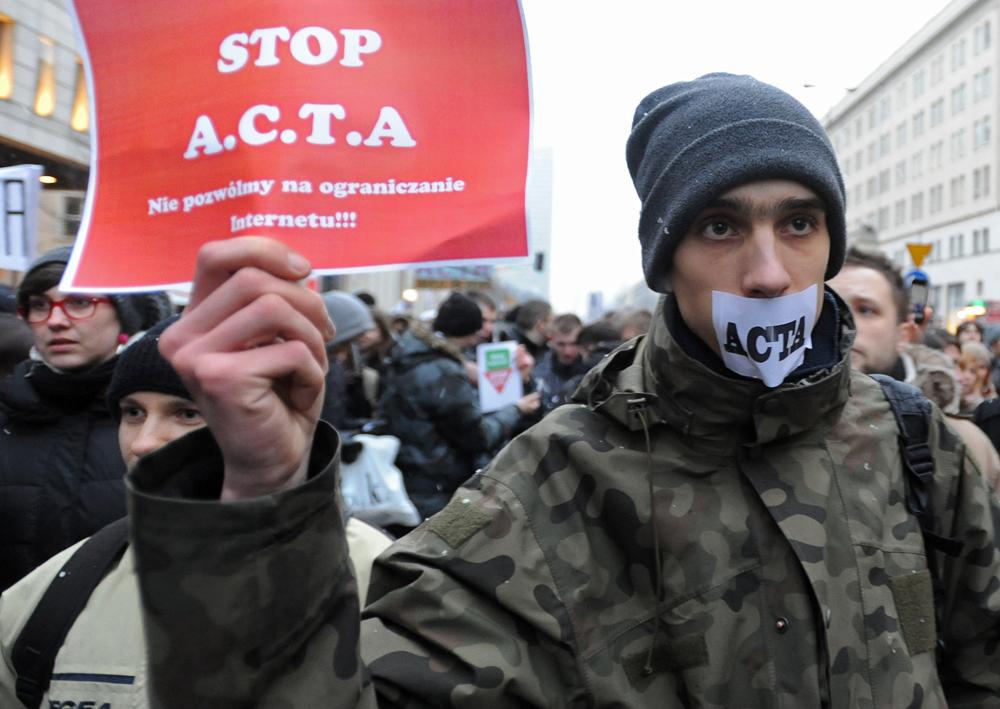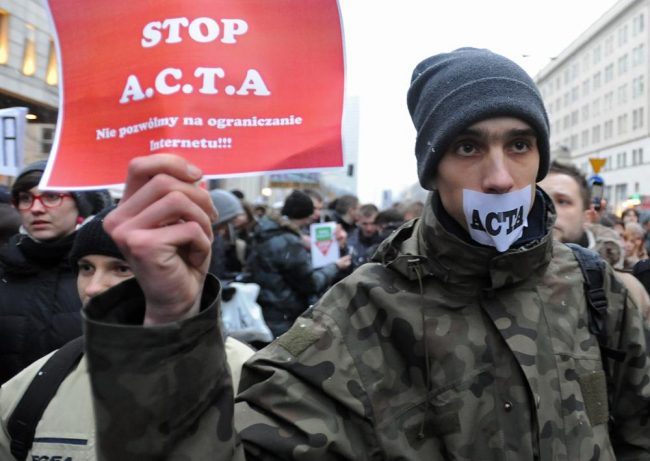
Internet activists protest against the international copyright agreement ACTA in front of the European Parliament office in Warsaw, Poland, Tuesday. (Associated Press)
Although much public interest has recently been directed toward stopping SOPA and PIPA from passing the U.S. Congress, an international trade agreement called ACTA, the Anti-Counterfeiting Trade Agreement, has been in the works for almost three years and makes SOPA and PIPA look like child’s play.
SOPA and PIPA were successfully blocked in the United States through petitions to congress and blackouts by major websites like Google and Wikipedia. Congressional support for SOPA and PIPA reversed almost overnight.
ACTA, however, has failed to reach the same level of public scrutiny. Negotiated in secret, it’s a multi-national agreement involving 39 countries, and the individuals who have been involved in negotiations are not democratically elected representatives and cannot be petitioned in the same way SOPA and PIPA could.
During negotiations, both the Bush and Obama administrations rejected requests to make the text of ACTA public under the pretense that doing so would be dangerous to national security.
Obama has already done us the favor of ratifying ACTA on behalf of the United States, without congressional approval. His administration, however, insists that ACTA is not a treaty that needs to be authorized by congress but an “executive agreement.” I checked the constitution and found no authorization to be such a thing.
Under the original text in ACTA, a multi-national body would create criminal sanctions by making Internet service providers legally responsible for what their users do online.
This effectively turns ISPs into private copyright policemen and judges in the naming of protecting patents — protections that would never exist in a free market to begin with.To avoid legal trouble, the inevitable result will be censorship of the Internet.
In terms of sharing, ACTA effectively took a centuries-old legal concept — innocent until proven guilty — and turned it on its head. Shared content is guilty until proven innocent, and massive costs will be inflicted upon service providers to clean up what their users share.
Therefore, the police burden therefore turns to the private sector, and increased costs will effectively raise the cost of copyright compliance to the point where amateur sharers will simply get out of the business.
We live in a world where anyone can share something online through Facebook, Flickr, Tumblr, YouTube and everything in-between.
Audio and video files can be shared by a 12-year-old kid on YouTube, and the time may soon come where if his class project uses an unauthorized clip of a copyrighted song or music video, it will be censored from the internet.
We share things that we make, share things that we find and share things that we make with what we find. This horrifies many industries, and SOPA, PIPA and ACTA are only the beginning of the music industry trying to protect its interests by preventing competition.
Many of the overbearing provisions of ACTA have been stripped away after its text was finally released to the public, but it should be noted that Internet censorship will undoubtedly be tried again, and we should all be ready to fight it when it comes.
Richard is a sophomore majoring in political science.









